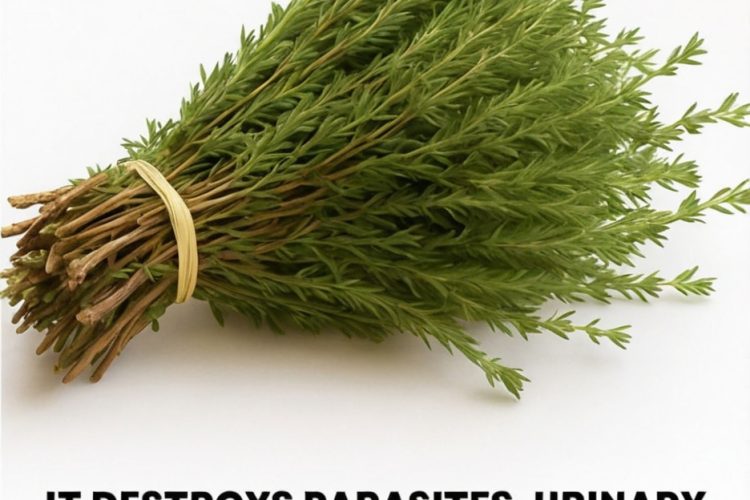Oregano: Nature’s Small but Mighty Healer – A Deep Dive into Its Remarkable Powers
We’ve all sprinkled oregano over pizza or pasta, but did you know this humble herb carries a rich legacy as a natural healer? 🌿 Oregano isn’t just a kitchen staple — it’s been valued for centuries across cultures for its powerful wellness benefits. And now, modern science is uncovering what our ancestors seemed to know all along: oregano offers more than just great flavor — it supports the body in countless ways.
In this in-depth guide, we’ll explore everything you need to know about oregano: its fascinating history, science-backed health benefits, practical uses, and how you can incorporate it into your daily routine for better wellness.
The History and Origins of Oregano
Oregano (Origanum vulgare) has a story that stretches back thousands of years. Native to the Mediterranean region, this fragrant herb was cherished by the ancient Greeks and Romans, not just for its flavor but for its medicinal properties. The name “oregano” comes from the Greek words oros (mountain) and ganos (joy), meaning “joy of the mountains.” Ancient healers believed oregano brought joy and wellness to those who consumed it.
Used in everything from poultices for wounds to teas for respiratory ailments, oregano was considered a symbol of health and protection. It was also believed to ward off evil spirits — a testament to its revered status in folklore.
Today, oregano is cultivated worldwide, but it still holds its most powerful cultural and culinary significance in Mediterranean and Middle Eastern cuisines.
What Makes Oregano a Wellness Powerhouse?
The secret to oregano’s potent healing abilities lies in its natural compounds, particularly carvacrol and thymol. These compounds are responsible for the herb’s antibacterial, antiviral, antifungal, and anti-inflammatory properties. They work together to help protect the body from harmful pathogens while supporting natural balance.
Modern studies have highlighted oregano’s impressive antioxidant profile, showing that it may help combat oxidative stress — a key contributor to aging and many chronic diseases.
Oregano also contains rosmarinic acid and terpenes, compounds that may contribute additional protective and healing properties.
Top Health Benefits of Oregano
✅ Supports Digestive Health – Oregano can encourage healthy digestion by supporting beneficial gut bacteria and helping reduce bloating and discomfort after meals.
✅ Eases Urinary Discomfort – With its gentle antibacterial action, oregano can assist in maintaining urinary tract health and comfort, offering natural support when minor issues arise.
✅ Strengthens Immune Defenses – The carvacrol in oregano is known to help interfere with the replication of viruses, lending extra immune support during cold and flu season.
✅ Soothes Joints and Muscles – Thanks to its anti-inflammatory properties, oregano may help ease occasional joint stiffness, muscle aches, or nerve discomfort.
✅ Balances Yeast and Fungal Levels – Oregano oil is particularly noted for its ability to help keep yeast levels in check, especially Candida overgrowth.
✅ Rich in Antioxidants – Oregano’s high antioxidant content helps combat free radicals and oxidative stress, supporting healthy aging and overall vitality
Everyday Ways to Enjoy Oregano
Oregano Tea
Steep fresh or dried oregano leaves in boiling water for 5–10 minutes. Add a drizzle of honey or a squeeze of lemon for flavor. This tea can soothe digestion and provide comfort on cold days.
Culinary Uses
Sprinkle fresh or dried oregano on pizzas, pastas, soups, grilled vegetables, roasted meats, and salads. It’s an easy way to add flavor and health benefits at every meal.
Topical and Home Uses
- Add a few drops of diluted oregano essential oil to massage oils to soothe tired muscles.
- Mix into foot soaks or homemade cleaning sprays for natural antibacterial power.
Oregano Essential Oil
Always use food-grade oregano oil if ingesting (with professional guidance). For topical use, dilute well with carrier oils like coconut, olive, or almond oil.
- Consult a healthcare provider before using oregano oil internally, especially if pregnant, nursing, or managing health conditions.
- Dilute essential oil properly before applying to skin to avoid irritation.
- A pinch of fresh oregano brightens dishes like omelets, wraps, sandwiches, and even savory muffins.
The Science Behind Oregano’s Benefits
Emerging research supports what traditional healers have known for centuries. Studies suggest that carvacrol and thymol help inhibit the growth of harmful bacteria, including strains like E. coli and Salmonella. Other research highlights oregano’s potential to support healthy inflammation levels and its role in modulating immune response.
Laboratory studies have even shown that oregano extracts may have activity against certain viruses and fungi, though more human trials are needed to fully understand these effects.
In traditional medicine systems — from Greek to Ayurvedic — oregano has been used for respiratory issues, skin conditions, digestive troubles, and general wellness. Today, you’ll find oregano in supplements, teas, tinctures, essential oils, and more. Herbalists often recommend it as part of immune support protocols, while chefs value it for its versatile flavor profile.
Final Thoughts
Oregano is truly a small but mighty herb. It bridges the worlds of flavor and healing, offering benefits that are as timeless as they are powerful. By adding oregano to your daily routine — whether through cooking, tea, or mindful use of its oil — you can tap into a tradition of wellness that’s lasted for generations.
The next time you sprinkle oregano onto your meal, take a moment to appreciate this ancient herb’s rich history and potent promise for modern health.
